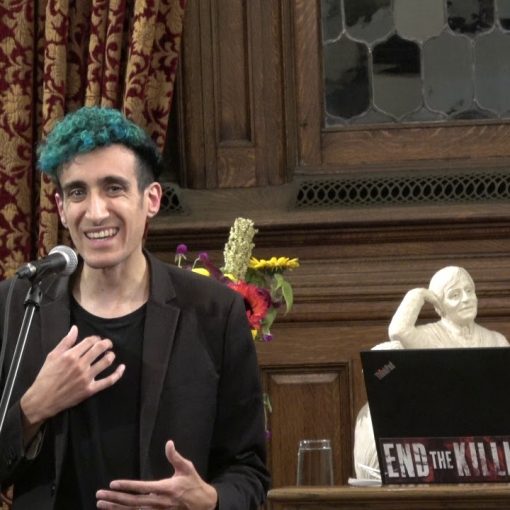On November 14th, 2009, I was invited to give a speech at a tribute to Brother Domenic, principal of De La Salle College “Oaklands” from 1996 to 2009. I graduated from De La Salle in 2005.
In March of 2004, sitting in English class, Mr. Hunt told us that we were all schizophrenic. We were schizophrenic for “attending a school run by a man from another century,” and putting on our uniforms, and combating this “tidal wave of junk,” and then going out and living in it. “It’s one thing to be stuck in this hurricane,” he said, “but it’s even worse to be a schizo stuck in this hurricane!”
From Mr. Hunt, being a “man from another century” is a profound compliment of the highest order. I’ve been fortunate enough to know this man from another century for the past eight years of our century — and, unlike Alessia, only four years as a student, and the other four as an alumnus who hangs around the school a bit too much. Since graduating, I’ve attended — among other things — every Christmas and Founder’s Day mass that I could. Only a direct conflict would stop me; if my exams were in the afternoon, I’d be here in the morning.
One of the main benefits of being at the school assemblies has always been Brother Domenic’s speeches. I remember him stressing what it means to be a signum fidei at the opening assembly in 2001, when I was in Grade 9. I remember a speech railing against the phrase, “that’s nice,” as a focus on mediocrity. I remember him stressing that, at De La Salle, we are not taught to be great, but to be good — not in terms of being mediocre, but in terms of being centred on Christ. The most memorable of all, however, were the words of wisdom Brother offered us during a time of great mourning, at Ian Lawson Van Toch’s Mass of the Resurrection. Brother Domenic said,
The way we measure success as human beings is terribly flawed. I am increasingly of the view personally that we have it terribly wrong. It is not the length of days or the accomplishments or the conquests, or health or the career, which makes us most human and therefore like God in whose image we are created. It is our capacity to love and be loved by others.
Success is our capacity to love and be loved by others.
And love? The Pastoral Constitution on the Church in the Modern World, Gaudium Et Spes (“Joy and Hope”), explains love in the following way:
(24) God, Who has fatherly concern for everyone, has willed that all men should constitute one family and treat one another in a spirit of brotherhood…
For this reason, love for God and neighbour is the first and greatest commandment. Sacred Scripture, however, teaches us that the love of God cannot be separated from love of neighbour…
Indeed, the Lord Jesus, when He prayed to the Father, “that all may be one. . . as we are one” (John 17:21-22) opened up vistas closed to human reason, for He implied a certain likeness between the union of the divine Persons, and the unity of God’s sons in truth and charity. This likeness reveals that man, who is the only creature on earth which God willed for itself, cannot fully find himself except through a sincere gift of himself.
In other words, man cannot truly be successful except through a sincere gift of self.
Love is a self-giving — to love is to serve — and to be truly successful is to love and to be loved.
Brother Domenic, it’s clear by your abundant service and gift of self to the school community, and by the community of people assembled here today who love you, that you have truly been successful.


